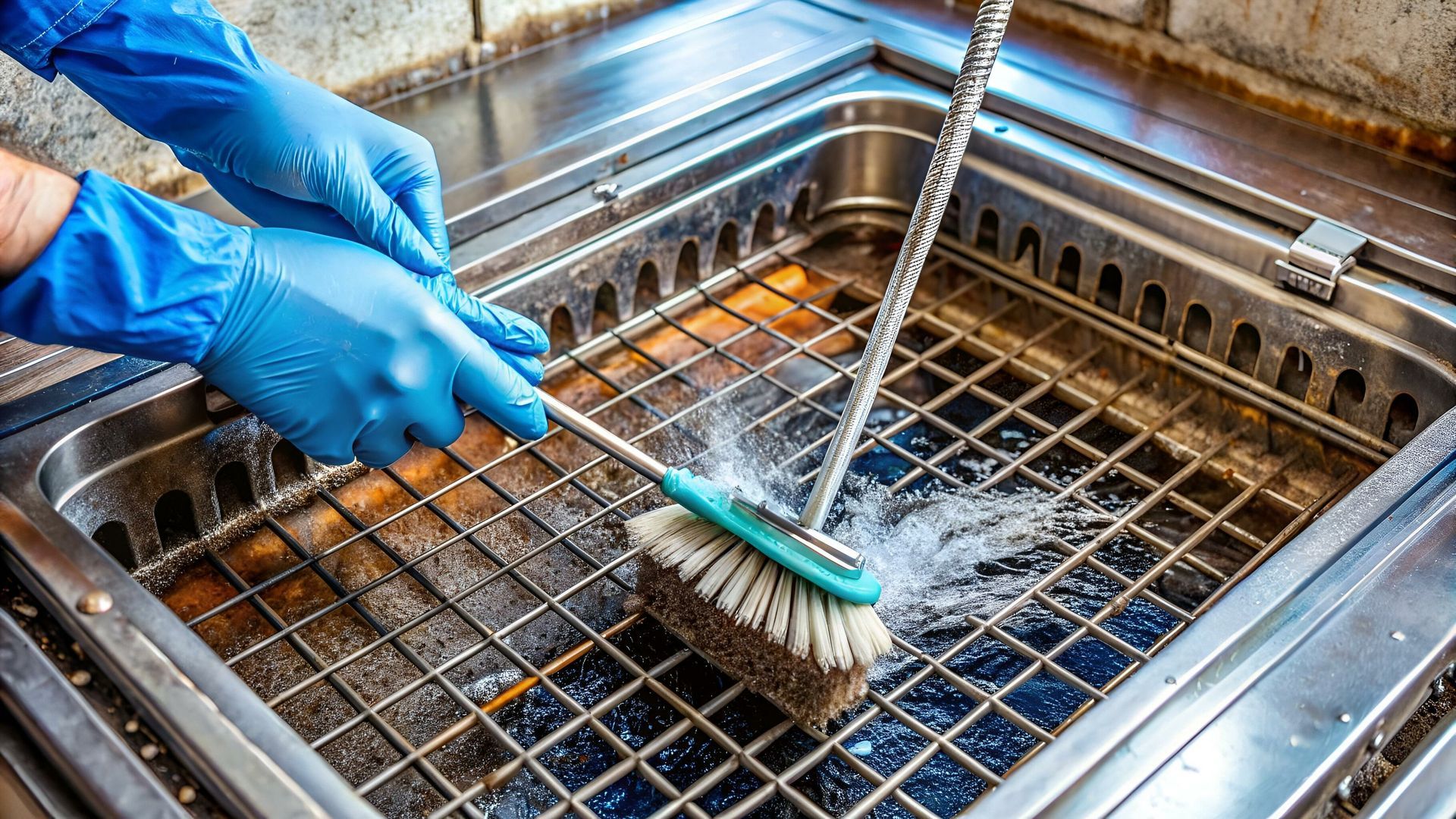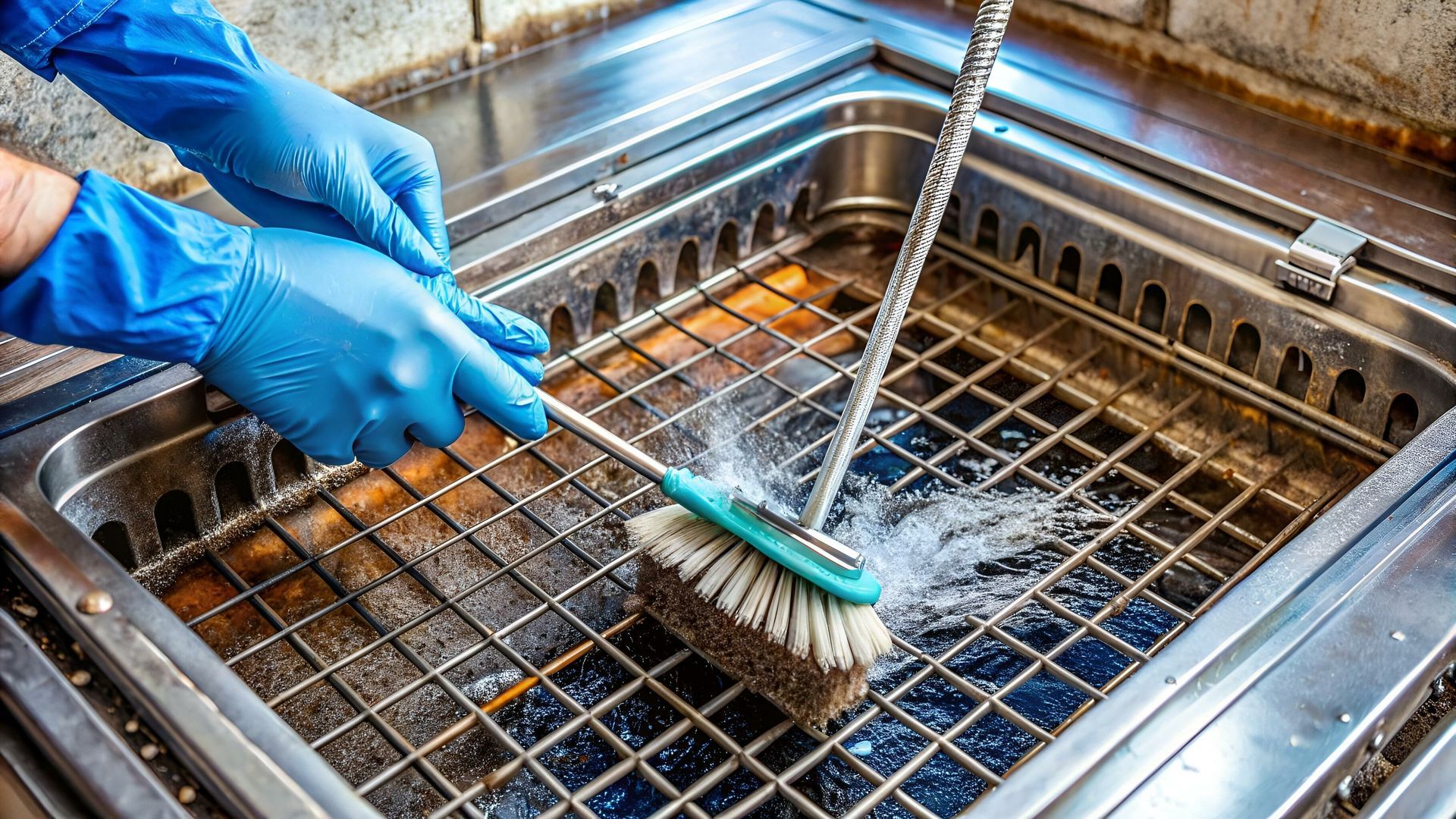Why Grease Trap Cleaning Is a Crucial Component of Facility Waste Management

In any commercial kitchen or food service operation, waste management is a crucial aspect of day-to-day operations. Among the various waste streams that need to be managed, fats, oils and grease (commonly referred to as FOG) pose a unique challenge. When not properly captured in a grease trap and regularly removed, these materials can wreak havoc on sewers, cause unpleasant odors and result in costly repairs.
The only effective way for food service businesses to manage FOG is through regular grease trap cleaning and maintenance.
The Role of Grease Traps in Waste Management
Grease traps are designed to intercept fats, oils and grease before they enter the sewer system. These substances are heavier than water and tend to congeal as they cool. Without a grease trap, FOG can build up in pipes, leading to clogs, backups and potentially expensive repairs. By capturing FOG before it can reach the sewer, grease traps play a key role in minimizing infrastructure damage and preventing blockages that can disrupt operations.
Their role means grease traps are not a “set it and forget it” solution. They quickly fill up with FOG and other solid waste between cleanings and will eventually overflow.
Why Regular Grease Trap Cleaning Is Essential
- Prevents Costly Sewer Blockages and Backups: When grease builds up in your plumbing system, it can cause blockages that lead to slow drainage or, worse, sewer backups. In addition to being inconvenient and creating unsanitary conditions, these issues often necessitate expensive emergency repairs and water damage remediation. Regular grease trap cleaning helps to minimize the risk of sewer blockages and backups, saving you money in the long run.
- Improves Operational Efficiency:
A clean grease trap ensures that wastewater flows smoothly through your pipes. This keeps your kitchen or facility operating efficiently and limits disruptions caused by slow drains or backups.
- Prevents Unpleasant Odors: Over time, trapped grease and food particles can begin to decompose, creating foul odors that can permeate your facility. Regular cleaning prevents these odors from becoming an issue and allows businesses to maintain a clean, pleasant environment for both staff and customers.
- Extends the Life of Your Grease Trap:
Like any piece of equipment, grease traps need regular maintenance to function properly. Neglecting cleaning can lead to corrosion, leaks and other damage, which can reduce the lifespan of the trap and require costly replacements.
- Avoid Fines and Business Closures: Grease trap cleaning is not optional. Every food service business in Atlanta is required to have their grease trap cleaned and serviced by professional cleaners who are licensed to collect and haul off the wastewater and the contents of their grease trap. During random or scheduled inspections from the Department of Watershed Management, food service businesses are required to show proof they adhered to the legally required frequency of cleanings.
Grease Trap Cleaning as Part of a Comprehensive Waste Management Strategy
While grease trap cleaning is a critical part of waste management, it’s only one piece of the puzzle. A comprehensive waste management strategy involves addressing all types of waste generated by your facility, including food scraps, paper products and other waste streams.
Integrating grease trap maintenance into a broader waste management plan can enhance efficiency and sustainability in several ways:
- Segregating Waste Properly:
Proper waste segregation reduces the risk of cross-contamination. For example, food scraps should be separated from recyclable materials, and waste fryer oil should never be disposed of down the drain.
- Reducing Waste Generation: By implementing best practices in the kitchen, such as scraping food waste into appropriate containers before washing dishes, you can minimize the amount of grease and solids that end up in your grease trap.
- Recycling and Waste Fryer Oil: Used oil from fryers can be recycled into biodiesel or other useful products. Some grease trap cleaning companies, including Southern Green Industries, can pick up used fryer oil and turn this waste stream into a valuable resource, reducing your environmental footprint.
- Regular Inspections and Maintenance: It’s important to inspect other parts of your waste management system, such as dumpsters, recycling bins and trash compactors, to make sure everything is functioning properly. Routine inspections help to identify potential problems before they become serious issues.
How to Implement an Effective Grease Trap Maintenance Program
Developing an effective grease trap maintenance program requires planning and consistency.
Work with a licensed grease trap cleaning service to determine the appropriate frequency for cleanings based on your facility’s size, volume and type of operation.
Businesses that have operated for long enough typically develop a solid grasp of their average food preparation volume and the speed with which their grease trap fills. As long as you meet the frequency requirements for your grease trap size and never exceed the 25 percent FOG by volume rule between cleanings, you should be fine.
If you do notice that the trap is filling up faster than expected, it may be time to schedule maintenance or increase the frequency of cleanings.
Maintaining records of all grease trap cleanings, inspections and any repairs that are made is vital. These records will allow you to demonstrate compliance during inspections.
High-Quality Grease Trap Cleaning and Fryer Oil Recycling in Atlanta, GA
Keep your kitchen clean and compliant with our high-quality grease trap cleaning services in Atlanta, GA.
Contact us on our website or give us a call at (404) 419-6887 and keep your business running smoothly.
Recent Blog Posts
Contact us Today for a FREE Quote
We are committed to making grease trap cleaning and fryer oil recycling as clean and easy as possible. If you’d like to learn more about our services or get a quote, give us a call at (404) 419-6887.



